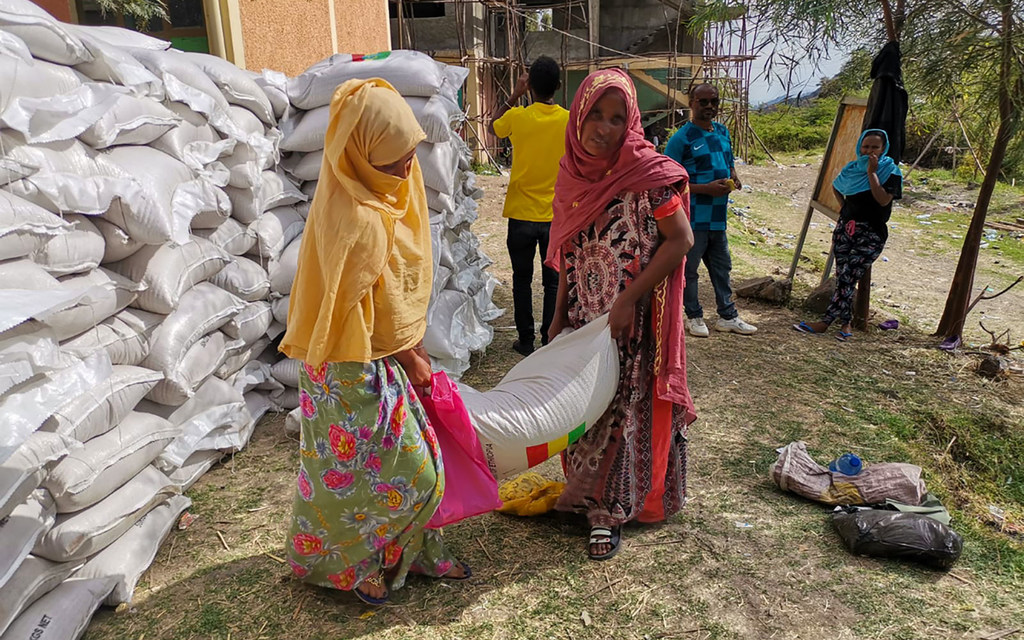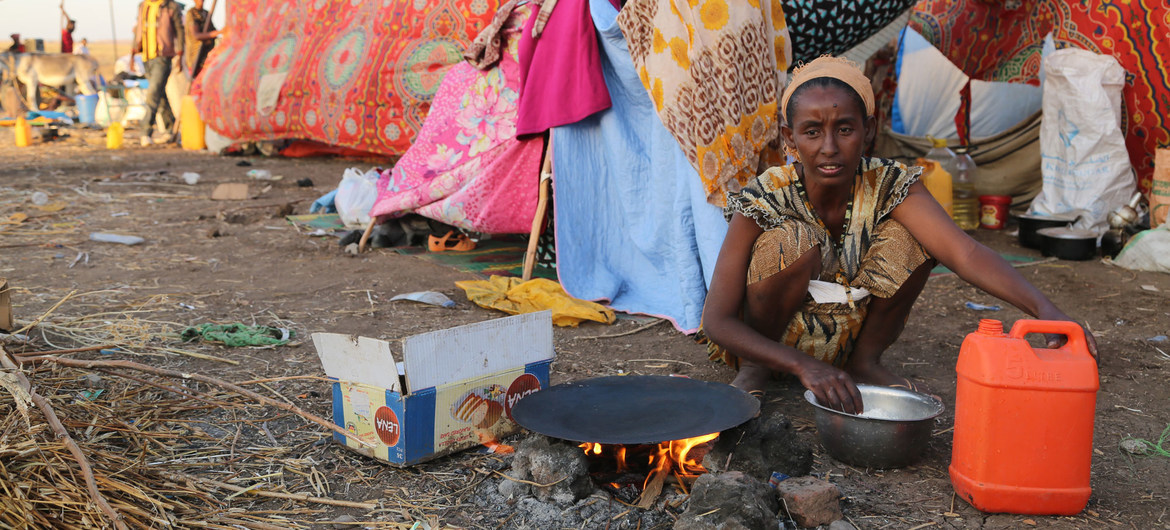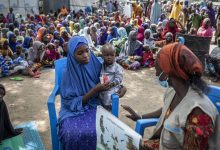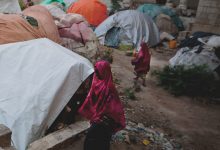9.4 million people are ‘living their worst nightmare’ in northern Ethiopia due to ongoing conflict
 The number of people in need of humanitarian food assistance across northern Ethiopia has spiked as a direct result of ongoing conflict, the United Nations World Food Programme (WFP) said on Friday.
The number of people in need of humanitarian food assistance across northern Ethiopia has spiked as a direct result of ongoing conflict, the United Nations World Food Programme (WFP) said on Friday.
“Today, 9.4 million people are living their worst nightmare,” Tomson Phiri, the agency’s spokesperson, told journalists in Geneva.
80 per cent ‘behind battle lines’
Of the people across northern Ethiopia in need of assistance, more than 80 per cent – 7.8 million – “are behind battle lines”.
The largest jump in numbers has occurred in Amhara region with 3.7 million people now in urgent need of humanitarian aid.
Screening data from all three regions in Northern Ethiopia has shown malnutrition rates of between 16 and 28 per cent for children. Even more alarming, up to 50 per cent of pregnant and breastfeeding women screened in Amhara and Tigray were also found to be malnourished.
Delivery of aid
According to the WFP spokesperson, a convoy loaded with 2,200 metric tons of life-saving food is expected to arrive in Mekele (in Tigray) in the coming days; 35 trucks have arrived so far and more vehicles loaded with food from Kombolcha are being sent into Southern Tigray today.
Corridors into Tigray had been closed due to the recent Tigrayan advances into Afar and Amhara, as well as severe disruptions linked to federal government approvals.
Mr. Phiri pointed out that this has meant that less than a third of the supplies needed have entered the region since mid-July.
He added that one million litres of fuel is also needed to be able to reach the 7.8 million people behind battle lines.
A ‘textbook’ humanitarian crisis
While WFP has reached 180,000 people in Tigray in this current round, this amounts to just seven percent of the 2.5 million WFP needs to reach, the spokesperson highlighted.
“A famine has not been declared in Ethiopia but…we are running out of words really to capture exactly the situation that is unfolding before our eyes, but… it is the textbook definition of a humanitarian crisis”, he said.
Earlier this week WFP delivered food to over 10,000 people in the Amhara towns of Dessie and Kombolcha. These were the first distributions to happen there since they were taken over by Tigray forces almost a month ago. WFP was only granted full access to its warehouses in the region last week.
To date, WFP has reached more than 3.2 million people with emergency food and nutrition assistance across northern Ethiopia, including 875,000 vulnerable mothers and children with nutritionally fortified food.
In Amhara, WFP has reached more than 220,000 people with food and nutrition assistance and is scaling up to reach 650,000 people. In Afar, WFP has distributed food to 124,000 people out of its targeted 534,000.
Urgent action needed
Mr. Phiri called for urgent action to be taken to help WFP deliver assistance over the next six months.
At least $316 million in funding is required for Northern Ethiopia, with an unprecedented $579 million to save and change the lives of 12 million people across the country over the next six months.

© WFP/Leni KinzliTens of thousands of Ethiopians have been displaced by the ongoing conflict in the Tigray region.
Risk of genocide is real
Later on Friday, the Special Adviser on the Prevention of Genocide, Alice Wairimu Nderitu, reiterated her grave concerns regarding the deterioration of the situation.
For Ms. Nderitu, several threats are “spiralling the country down to a path where the risk of commission of atrocity crimes, including genocide, is real and must be addressed as a matter of utmost urgency.”
She pointed to calls to arms and hate speech, militarization of society, ethnic profiling, denial of humanitarian access and blockage of food to areas under fighting inhabited by specific ethnic communities.
The Special Adviser also called on regional and international actors to intensify their engagement to “prevent falling into this abyss.”
Ms. Nderitu concluded saying that, while nothing can restore the lives of those that have been lost, it is not late to prevent more suffering and to put an end to the hostilities through dialogue.



